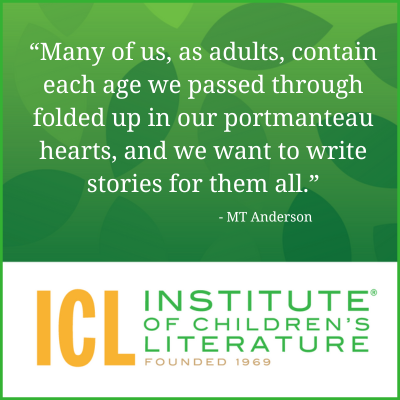1000 N. West Street #1200, Wilmington, DE 19801
© 2024 Direct Learning Systems, Inc. All rights reserved.

The new year is a good time for self-evaluation, as much as it is for planning and goals. To really understand how best to plan for your writing adventure for a new year, it’s a good idea to look inward and ask yourself:
Know why you write, will help you through the times when it’s difficult to write and will keep you going on your writing journey.

This means that if my only motivation was to write something for my daughter, I would have been pretty disappointed in my writing journey. Wanting to do something for my daughter worked in the beginning; it turned my attention from the writing I was doing for adults to writing for kids, but it wasn’t enough to sustain a career. A motivation that sustains also benefits from being bigger.
These days I make decent money writing. In fact, it’s our primary income. But I’ve also been writing professionally since 1983 and I had a lot of years where my income from writing was sparse, really sparse.

Learning takes time and effort and more than a little frustration. Part of the frustration comes from the difficulty in telling when you’re writing at a professional level. Research studies have shown that it tends to take the same skill set to tell if you are doing something well, as it takes to actually do it well. That means that by the time we’re a decent judge of our own writing, we’re probably doing it pretty well. Before then, we usually weren’t as good as we thought we were.
I know that was true of me. Some of the first stuff I wrote for kids was pretty bad. Editors were a lot kinder to me than I deserved when they sent rejection letters offering to look at more of my work. I had a lot to learn, and that was on top of the fact that I was already making money in writing for adults. It’s not a one to one swap. Writing for kids is a challenge, but it’s one that’s well worth the effort to master.
I don’t see this motivation as often as I do the other two, and it’s not one that has ever driven me, but I do know people who get into children’s writing because they things kids these days are in need of fixing. And they hope they’ll write the story that will fix them.

The root problem with writing to fix kids is the belief that other people’s kids need to be parented by your writing. Publishers mostly don’t buy books like that, because parents don’t buy books like that and kids certainly don’t choose books like that for themselves. Stories about dreadful children who come to bad ends did have their time in history, but that time isn’t now. Mostly children read for the same reason you do. They want a good story that lingers in their imagination. They aren’t looking for stories to nag them about their behavior. They have parents for that.
Now, there is one area where writing to teach kids something excels: nonfiction! Many young people love informational nonfiction and will turn to it specifically to learn things. They’ll buy books to learn about animal mummies or tiny dinosaurs or the future of robotics. That’s because when kids want to learn something, they turn to nonfiction, the same as adults.
The writers who tend to stick in this business are the ones who write because they feel a passion for the storytelling. They do hope readers will love it. They do hope it lingers in the minds of the reader. They do hope it offers insight into life. But mostly, they’re in it for the story. These writers feel these stories building up inside them and they need to pour them out. Sometimes that outpouring is an ecstatic river and sometimes it’s a painful drizzle, but without writing, these folks feel something important is missing. These writers read for pleasure, and write for love (even when they hate it just a little bit). And those motivations will keep them writing even through the learning curve, the frustrations of the business, and the questionable support of those around them. They write because writing is its own reward. They want more, of course, but they’ve learned to love the process.
Loving writing is a lot like loving a person. Sometimes it’s easy. Sometimes it’s hard. But somehow it feels a little bit like you have no choice. You need to love this person. You need to love this writing. Fall in love and that motivation will change the journey for you and keep you on the road forever.
With over 100 books in publication, Jan Fields writes both chapter books for children and mystery novels for adults. She’s also known for a variety of experiences teaching writing, from one session SCBWI events to lengthier Highlights Foundation workshops to these blog posts for the Institute of Children’s Literature. As a former ICL instructor, Jan enjoys equipping writers for success in whatever way she can.
1000 N. West Street #1200, Wilmington, DE 19801
© 2024 Direct Learning Systems, Inc. All rights reserved.
1000 N. West Street #1200, Wilmington, DE 19801
© 2024 Direct Learning Systems, Inc. All rights reserved.
1000 N. West Street #1200, Wilmington, DE 19801
© 2024 Direct Learning Systems, Inc. All rights reserved.
1000 N. West Street #1200, Wilmington, DE 19801
© 2025 Direct Learning Systems, Inc. All rights reserved.
1000 N. West Street #1200, Wilmington, DE 19801
©2025 Direct Learning Systems, Inc. All rights reserved. Privacy Policy.
1 Comment